Iranians of all backgrounds have together built Iran, regardless of their personal opinions, religion, or ethnicity. In a series of reports, IranWire looks at prominent personalities from Iran’s ethnic and religious minorities who made major contributions to the country’s progress. If you know of such figures and their services to Iran, you can share it with us by emailing [email protected].
Dr. Mehri Rasekh graduated from Tehran University in 1951 with honors in psychology and pedagogy. Iran’s government at the time would send the country’s top graduates to Europe, at public expense, so that they would later return to Iran and assist in its development. Dr. Rasekh, who was part of this elite cohort, chose the University of Geneva because the famous Swiss psychologist Jean Piaget, who founded cognitive development theory, taught at the university. Dr. Rasekh and her husband, Dr. Shapour Rasekh, who she had married in 1946 in Tehran and who helped establish the field of sociology in Iran, travelled to Geneva in the early 1950s.
The University of Geneva did not yet recognize Iranian university degrees, so to study for a Master’s and PhD she had to obtain an equivalent from the university; in 1961 in Geneva, finally, she received her doctorate in developmental psychology.
Her thesis, "Disorderly Children and Their Education," which was written under the guidance of Professor Piaget, was honored by the university and translated into Italian and Portuguese. Dr. Rasekh's thesis was the first in French to focus on the role of painting and art in psychological treatment. And she was the only Iranian psychologist ever to study under the world-famous Jean Piaget. Dr. Rasekh then traveled across Europe to continue research and along the way, in London, she met Anna Freud, the youngest child of Sigmund Freud and the founder of child psychoanalysis.
Teaching at Tehran University
Mehri Rasekh returned to Iran in the second half of 1962. She went on to teach developmental psychology and clinical psychology courses at Tehran University, where from 1966 she was a founding member of the Faculty of Psychology and Pedagogy, first as an associate professor and then as a professor, and she later served as head of department for several years.
Women, Life, Radio
One of Dr. Rasekh’s signature contributions to Iranian public life was her weekly radio program, "Women and Life,” on which she discussed family challenges and related topics. “Women and Life” marked the first broadcast by an Iranian woman on such topics. And it was so popular that even during Ramadan – when most broadcasts were suspended – “Women and Life” continued unabated. Dr. Rasekh used her broadcasts to answer the day-to-day concerns of Iranian women, including marriage, raising children and other commonplace family challenges. Dr. Rasekh’s show broke a pernicious cultural taboo: for the first time women felt empowered to discuss their personal and families issues.
A Life of Treatment and Research
One of Dr. Rasekh’s principal preoccupations was to work for women’s wellbeing. She wrote many articles on the subject, and delivered many lectures, in Persian, English, and French. Mehri Rasekh was a member of the Supreme Council of the Iranian Women's Organization, a government organization focused on women's issues. The organization was originally a charity, but later, it worked to change legislation related to the women's issues. Promoting and seeing the establishment of laws on family promotion and abortion were some of the organization’s contributions before the 1979 Islamic Revolution. Dr. Rasekh also travelled around the world on behalf of the body; in 1975, she represented Iran at the landmark World Conference on Women in Mexico City.
Dr. Rasekh also opened a private practice that catered to women, as well as men, where family, personal and relationship issues were all treated. And thanks to Dr. Rasekh, a psychological counselling clinic was established at the Girls' College, which helped female students who suffered from neurological and psychological problems as a cause of the stresses of living in Tehran.
Dr. Rasekh also taught at the Social Services Institute, later renamed the Faculty of Social Services, and at the Girls’ College which is now Al-Zahra University. She also taught psychology (by invitation) at the Faculty of Theology. And while Dr. Rasekh was advised to wear a headscarf at the theology faculty – before the Revolution, it was not mandatory – she did not consent, yet she was respected by her students who were future religious scholars. Mehri Rasekh was also active in reforming Tehran’s mental health hospital and took steps to improve its services.
Regarding his wife, Dr. Shapour Rasekh told Payam-e Bahai: “My wife was aware of most treatment methods, but she did not make herself a prisoner of any of them, because she believed that every disease required the use of a special method. Among psychiatrists her favorite was Dr. William Glasser, who created the Reality Therapy method. Glasser believed that two things drive human life and behavior, one is the need for love, which means having a meaningful mutual relationship with a responsible person, and the second is the need to feel valuable, having self-respect, and a sense of dignity. Another psychiatrist who drew Mehri's attention was Dr. Viktor Frankl, one of whose works is Man’s Search of Meaning. Frankl considers the root of some neuro-psychiatric diseases to be the patient's inability to find meaning in life and to understand his responsibility in life. His treatment method is called logotherapy.”
Attempted Assassination
Two years before the 1979 Revolution, on a holiday, as Mehri Rasekh was working in her office, a mentally unstable student entered her office with the intention of killing a Baha'i and attacked her with a knife. Dr. Rasekh's ribs were broken and her face and eyes were severely damaged. The university president sent Dr. Rasekh to a hospital in Zurich for treatment. Mehri Rasekh never sued the student and repeatedly said he should not be punished because he suffered from mental problems.
Life After Iran
In October 1978, Shapour and Mehri Rasekh went to Paris to participate in a UNESCO conference, after which they went to Geneva to visit their daughter. Thetrip coincided with the events of February 1979 in Iran, the Islamic Revolution, and the establishment of the Islamic Republic. The conditions for Baha'is living in Iran became difficult and systematic persecutions against the community began. Many prominent Baha'is were in danger, and groups of Islamic fanatics used the revolutionary atmosphere to arrest or kidnap well-known Baha'is under false pretenses.
As Dr. Shapour and Mehri Rasekh were highly visible Baha'is in Iran, their relatives asked them not to return and to wait until the country became stable. But their sojourn abroad never ended and these two Iranian scholars and researchers, who loved serving Iran, had to stay in Switzerland until the end of their lives and were buried from from their homeland. Dr. Mehri Rasekh worked in a psychology clinic in Switzerland, gave lectures, organized Iranian studies conference in Europe and wrote articles in Persian and French.
visit the accountability section
In this section of Iran Wire, you can contact the officials and launch your campaign for various problems







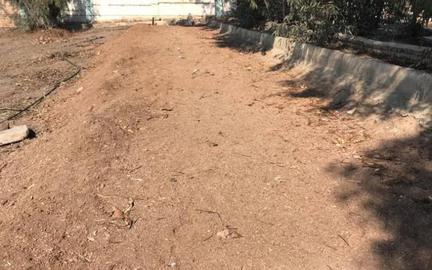

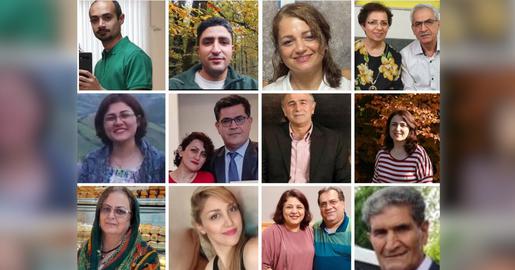
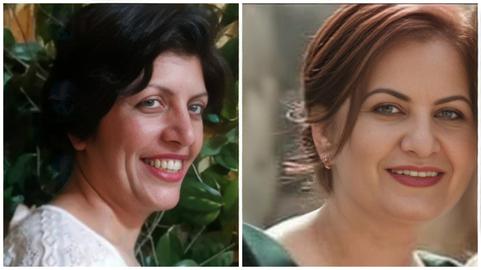

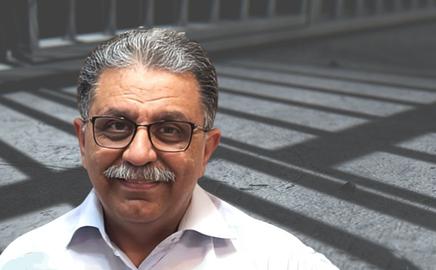

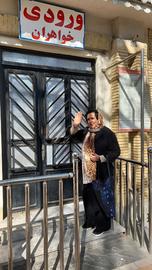
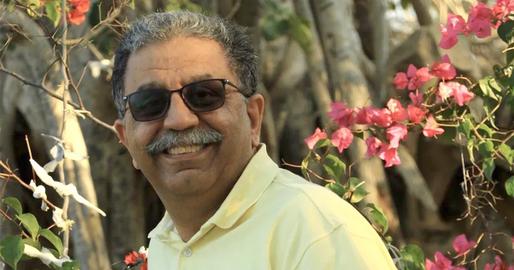




comments